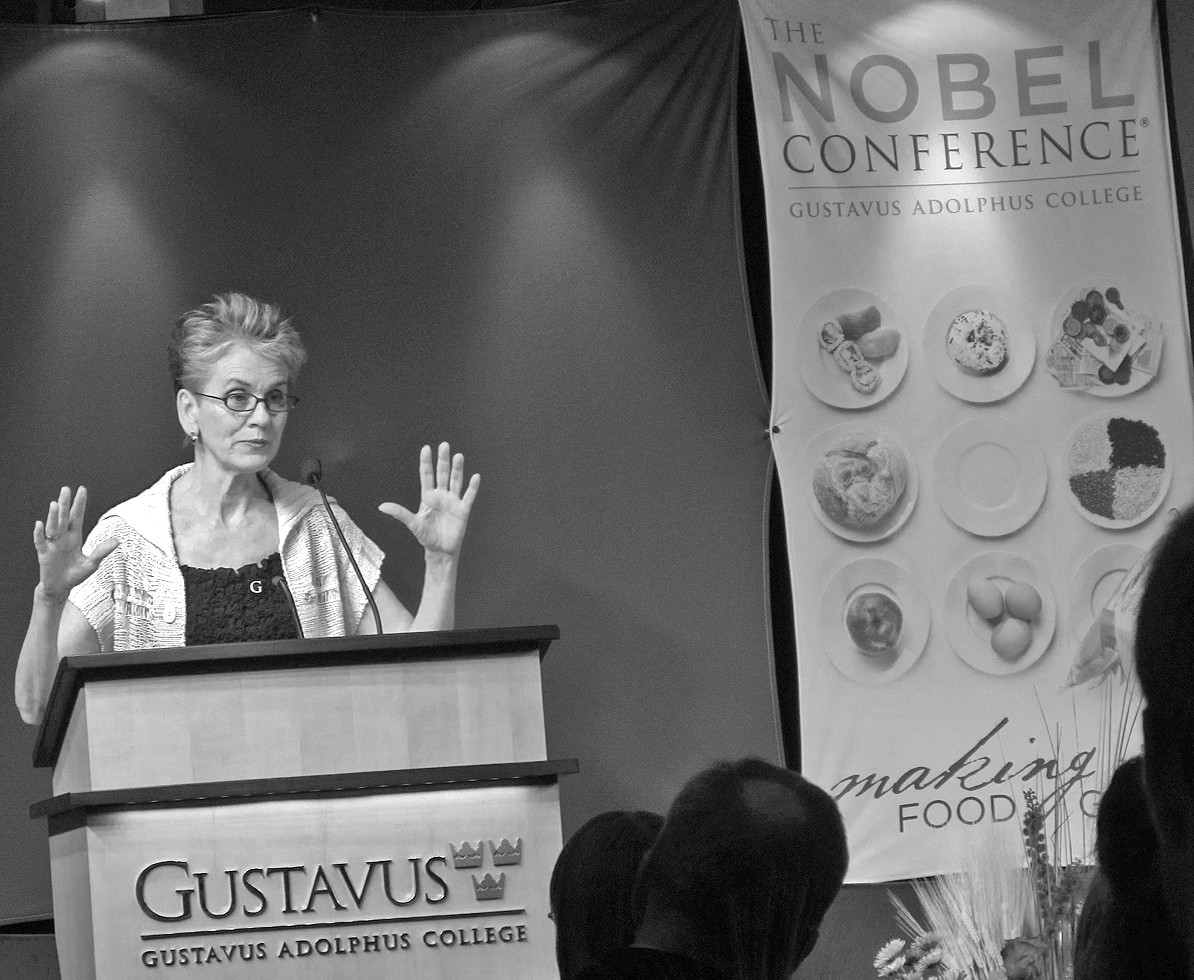Since 1963, Gustavus Adolphus College has been the proud host of the annual Nobel Conference. Each year, the Nobel Conference committee, consisting of Gustavus faculty and staff, assemble a panel of Nobel laureates to speak to students about cutting-edge scientific issues and engage them in discussion about the ethics and societal influences of these issues.
The 47th Nobel Conference will be concentrating on the answer to the question, “What makes us human?”—and what about our brains sets us apart from other beings?
“We have a saying in the Nobel Conference committee. Each year, we always conclude that ‘this Nobel Conference has been the best one!’…Until next year.” Psychology Professor Tim Robinson said. Robinson had been director of the Nobel Conferences for ten years. Robinson was a Psychology and Biology major as an undergraduate and had ‘Physiological Psychology’ training (as it used to be known). His interest in Psychology was first piqued by the topic of anti-psychotic medication.
“Part of the idea for this topic had arisen from an earlier Nobel Conference focusing on ‘Who Were the First Humans?’” Robinson said. “That was kind of a springboard to this new question: What’s different about our ancestors? And how does that develop into who we are now?” This Nobel Conference, which integrates the humanities—concerning philosophy and theology as well as many other aspects—asks where religion and neuroscience converge, if ever, and how this affects the way we think about things.
Religion Professor Garret Paul was one of the faculty members who planted the seed of having a Nobel Conference centered around the brain. Paul, after reading a book which posed the question, “What happens in the brain when we think about God?” thought it would be an interesting concept to try to decipher.
This year’s Nobel Conference, which explores the vast and extensive field of neurology, caters to different interests relevant to students all across the campus. “Areas like psychology, linguistics, genetics, as well as theology and ethics—all come together in this context, and show why it’s essential to work together in these huge disciplinary ways,” Director of the Nobel Conference Chuck Niederriter said.
“I’m most excited to see the first presenter, Vilayanur Ramachandran, M.D. Ph.D., talk about ‘empathy neurons’,” Robinson said. This idea, also known as ‘mirror neurons’, refers to the firing of neurons when an individual is both performing an act and the brain is observing the same action performed by another thing.
“Vilayanur is a dynamic speaker,” Robinson said. “People may recognize him from NOVA programs, as well was excellently written books—such as The Tell-Tale Brain. Ramachandran, who has studied phantom limb pain in amputees as well as empathy neurons, has also been a frequent speaker on TED Talks and is widely known in the field of neurology.
“I always think of the Nobel Conference as a public think tank for discussing how society works, and I hope students see that science is not as focused and narrow as they think it is; that it’s a much broader topic after all. There are various approaches to studying the brain. Maybe you’re not the one doing surgery to install an electrode into someone’s brain, but maybe you can study how music and the brain works,” Niederriter said, putting emphasis on the many different occupations that the study of the brain can introduce.
The Nobel Conference this year has already sold out tickets, estimating that approximately 6,000 are to attend. The most tickets that the Nobel Conference has ever sold was 7,000. “The Nature and Nurture Conferences accommodated the biggest crowd that we have ever had,” Robinson said, “and we just don’t have enough room in the Lund Arena for that.” Gustavus students, however, are able to watch the Nobel Conference, free of charge in other locations around campus (as long as students present their Three Crowns Card at the door).
There is also a live streaming of the Nobel Conference online, as well as other events to attend. In conjunction with the Nobel Conference, there is a Nobel Conference Concert in Bjorling Recital Hall (free—ticket required) on Tuesday, October 4, 2011 at 8:15 p.m. The theatre is also putting up On Ego that same day and time at the Anderson Theatre (Reserved seating, tickets available at gustavustickets.com or at the SAO desk).
“I really hope that students from across campus will participate in the Nobel Conference discussion and come to realize that, as complicated as a subject like neuroscience can be, it’s something that anyone, with effort, can become involved in, and at different levels,” Niederriter said.
The Nobel Conference will be held this year on Tuesday, Oct. 4, and Wednesday, Oct. 5, 2011 with the first presenters starting at 10:00 a.m.
